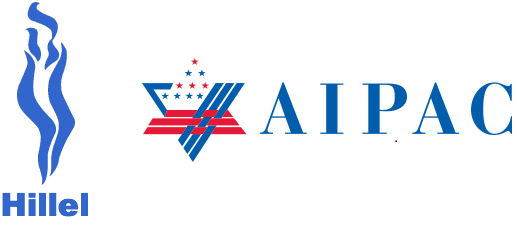
In their Israel Guidelines, Hillel International states that it “welcomes a diversity of student perspectives on Israel and strives to create an inclusive, pluralistic community.” But a recent New York Jewish Week op-ed co-written by new Hillel President and CEO Eric Fingerhut and AIPAC Leadership Development Director Jonathan Kessler calls into question Hillel’s commitment to welcoming and supporting forms of pro-Israel that fall outside the American Israel Public Affairs Committee (AIPAC) line. As a campus Hillel president, I see this as a tacit Hillel endorsement of AIPAC as the exclusive pro-Israel organization, which jeopardizes not only our ability to help students build meaningful relationships with Israel but also our goal of engaging more students in campus Jewish life.
Fingerhut and Kessler’s op-ed only serves to reaffirm the status quo of a monopoly on the meaning of pro-Israel—simultaneously ignoring Israel’s harsh political realities and unconditionally defending every Israeli policy. Our communal leaders seemingly believe in debate, discussion, and questioning on every issue but Israel. This hypocrisy endangers our community’s strength and future growth; if we don’t present students with multiple ways of forming strong relationships with Israel, then they may simply walk away from our community altogether.
To be sure, AIPAC has an important place in Hillel’s pro-Israel tent. But it’s simply not in Hillel’s self-interest to align itself so exclusively with AIPAC, when a diversity of alternatives exists. Ignoring other opinions on what it means to be pro-Israel risks alienating so many young American Jews who don’t feel that AIPAC represents them. Fingerhut and Kessler’s exclusive focus on fighting anti-Israel sentiment on college campuses, without mention of the ongoing Israeli-Palestinian peace negotiations, ignores thousands of students nationwide who seek to apply their values to the Jewish homeland itself by providing meaningful support for the two-state solution.
The well-documented crisis of Israel engagement among young American Jews was no more apparent than in the recent Pew Research Poll on Jewish Americans. The poll found that only 32% of American Jews aged 18-29 think caring about Israel is an essential part of being Jewish, compared to 53% of those 65 and older. At the same time, compared to their elders, young Jewish Americans were found to be much more supportive of the two-state solution but also more skeptical of the Israeli government’s efforts to achieve peace.
Any attempt to re-engage young Jewish Americans that does not address these statistical facts is bound to fail. Mainstream pro-Israel organizations don’t engage young, liberal-minded Jews because they offer no avenue to put their values into action and work for peace through two states. So when AIPAC claims to support a two-state solution but does not support the necessary compromises to get there – or is silent on or even supportive of measures that harm the viability of the two-state solution – that’s not only damaging to Israel’s quest for peace but also to the American Jewish community’s growth. If we fail to engage seriously with the challenges of the conflict and the opportunities the two-state solution brings, we can’t expect anything less than apathy and complacency.
From my experiences in the Dartmouth Jewish community, J Street U, for example, has offered the kind of engagement that Hillels across the country so desperately need. During my first few months on campus, I was frustrated that I hardly ever heard Israel mentioned—even in the Hillel building. But now, thanks to the strong presence of J Street U in the Dartmouth Hillel community, students have a space to form honest relationships with Israel through rigorous engagement and advocacy. Indeed, just a few weeks ago, hundreds of students showed up to hear former Israeli Prime Minister Ehud Olmert speak on the importance of the two-state solution and the compromises necessary to get there. Among the op-eds written in the campus paper was one by a leader in J Street U and the Hillel community. Dartmouth’s Jewish students are now engaging in an important conversation around Israel and the two-state solution. And the very students who are most invested in J Street U on campus are Hillel leaders, which shows a new, fruitful direction for Hillel’s Israel engagement.
Anyone who cares about the American Jewish community should be concerned about Hillel International’s demonstration of such favoritism towards the traditional pro-Israel camp. If Hillel as an institution continues to ignore the growing constituency of students who yearn for something different than what AIPAC is selling, then our community will suffer now and for years to come. Moving forward, I hope that Fingerhut fully embraces the vibrancy and diversity within the pro-Israel tent, empowering Hillels across the country to tap into the capabilities of American Jewish college students not only as pro-Israel advocates but also as the current and future core of the American Jewish community.
Asher Mayerson is President of Dartmouth College Hillel.
